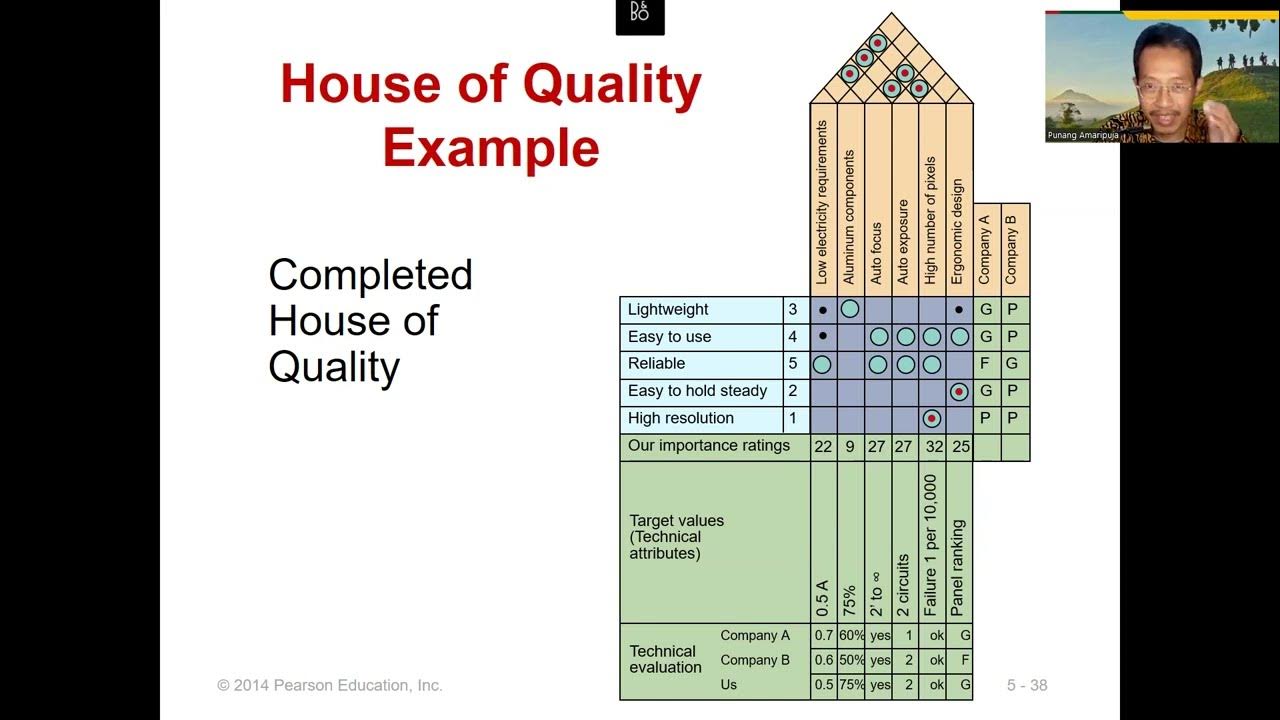Materi PKK - Pengujian Contoh Produk Barang/ Jasa
Summary
TLDRThis video covers the process of testing new products, including both technical and market testing methods. It explains four key types of testing: Technical Testing, which involves creating prototypes to identify potential issues; Preference and Satisfaction Testing, where consumers test the product and provide feedback; Simulated Test Market, which uses model simulations to predict market reactions; and Test Market, where the product is tested in a limited market to measure variables like trial, repetition, adoption, and purchase frequency. The aim is to evaluate the product's potential success before its full market launch.
Takeaways
- 😀 Product testing helps assess the potential success of new products in the market.
- 😀 The process of product testing includes several steps such as technical testing and market testing.
- 😀 Technical testing involves creating a prototype to identify possible defects and determine maintenance schedules.
- 😀 Preference and satisfaction testing helps identify key elements for marketing plans and estimates early product sales.
- 😀 Two methods of preference and satisfaction testing include consumer feedback over time and blind tests where consumers compare products without brand knowledge.
- 😀 Simulated test markets are used to evaluate consumer interest in a product with various testing models.
- 😀 Test markets involve offering a product in a limited geographic area to gauge consumer response before full launch.
- 😀 The key variables in product testing include trial, first repurchase, adoption, and purchase frequency.
- 😀 Higher results in these four variables indicate the product's success in the market.
- 😀 Effective product testing provides valuable insights that help businesses refine their products and marketing strategies.
Q & A
What is the purpose of product testing?
-The purpose of product testing is to assess the potential success of a new product by evaluating various factors such as customer preferences, product quality, and market demand before it is fully launched.
What is technical testing, and why is it important?
-Technical testing involves creating a prototype of the product, which simulates the final version. It helps identify potential issues such as defects, maintenance needs, and product reliability, ensuring that the product performs as expected.
What are the two methods of preference and satisfaction testing?
-The two methods of preference and satisfaction testing are: 1) Usage testing, where consumers use the product for a period and provide feedback, and 2) Blind testing, where consumers compare different products without knowing their brands or manufacturers.
What is the goal of blind testing?
-The goal of blind testing is to eliminate any brand bias by having consumers evaluate different products based solely on their features, without knowing which product is associated with which brand or manufacturer.
How does simulated test marketing differ from real-world test marketing?
-Simulated test marketing involves testing a product in a controlled, artificial environment that mimics real market conditions, whereas real-world test marketing involves launching a product in a limited geographic area to observe actual consumer behavior and sales.
What does a test market involve?
-A test market involves introducing a product in a limited geographical area to evaluate its real-world demand, using key metrics like trial rates, adoption rates, and purchase frequency to gauge the product's potential success in broader markets.
What are the four variables tested during a product's test market phase?
-The four variables tested during a product's test market phase are: 1) Product trial, 2) First repeat purchase, 3) Product adoption, and 4) Frequency of purchase.
Why is preference and satisfaction testing important for product development?
-Preference and satisfaction testing is crucial because it helps businesses understand how consumers feel about a product, which can inform decisions about product improvements, marketing strategies, and potential product adjustments before launch.
How does technical testing help in maintenance planning?
-Technical testing helps identify potential issues with the product, such as components that may wear out or require maintenance, allowing businesses to plan for timely repairs and replacements to ensure the product’s longevity and performance.
What does a successful test market result indicate?
-A successful test market result indicates that the product has high trial rates, strong customer adoption, and repeat purchases, which suggests that the product could perform well in the broader market if fully launched.
Outlines

This section is available to paid users only. Please upgrade to access this part.
Upgrade NowMindmap

This section is available to paid users only. Please upgrade to access this part.
Upgrade NowKeywords

This section is available to paid users only. Please upgrade to access this part.
Upgrade NowHighlights

This section is available to paid users only. Please upgrade to access this part.
Upgrade NowTranscripts

This section is available to paid users only. Please upgrade to access this part.
Upgrade NowBrowse More Related Video

Product Levels, New Product Development & Product Life Cycle in Hospitality – Lecture 9

Innovation 101 E4: Prototyping & Testing - Physical Products

What is Product development? | New Product development

House of Quality (QFD) || Dr Punang Amaripuja Serial Operasi dan Teknologi - MOT 05B

The Truth About Animal Testing for Cosmetics #BeCrueltyFree

Perkembangan Teknologi Pengolahan Hasil Pertanian dan Penguji Mutunya-Agroindustri
5.0 / 5 (0 votes)